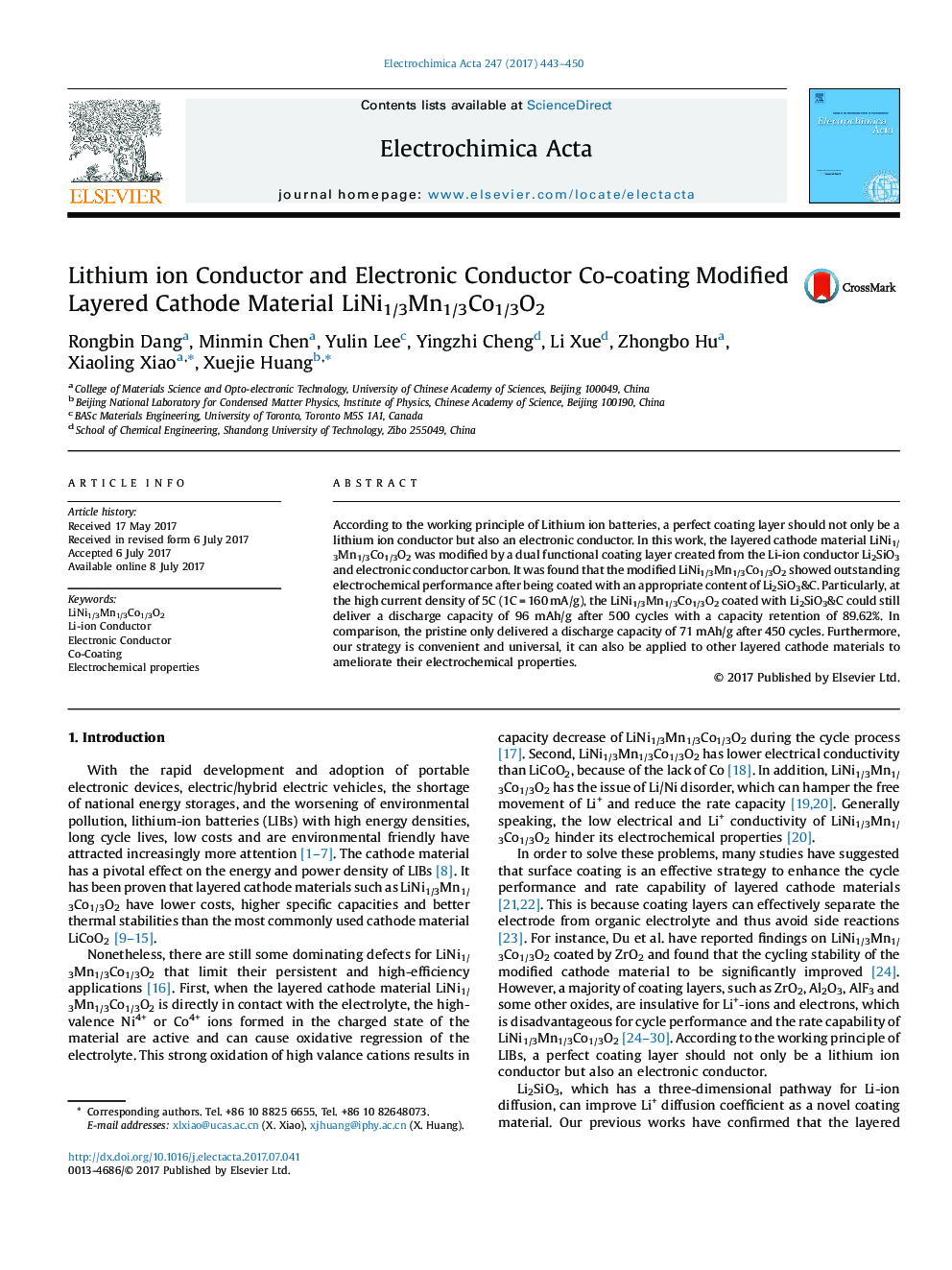| کد مقاله | کد نشریه | سال انتشار | مقاله انگلیسی | نسخه تمام متن |
|---|---|---|---|---|
| 6471021 | 1424110 | 2017 | 8 صفحه PDF | دانلود رایگان |

- Layered oxide LiNi1/3Mn1/3Co1/3O2 has been modified by the Li-ion conductor Li2SiO3 and electronic conductor carbon.
- The coating layer not only acts as a protection layer but also provides Li-ion and electron migration channels.
- The modified LiNi1/3Mn1/3Co1/3O2 electrode showed outstanding electrochemical properties.
- This universal coating method can also be popularized and applied in other layered cathode.
According to the working principle of Lithium ion batteries, a perfect coating layer should not only be a lithium ion conductor but also an electronic conductor. In this work, the layered cathode material LiNi1/3Mn1/3Co1/3O2 was modified by a dual functional coating layer created from the Li-ion conductor Li2SiO3 and electronic conductor carbon. It was found that the modified LiNi1/3Mn1/3Co1/3O2 showed outstanding electrochemical performance after being coated with an appropriate content of Li2SiO3&C. Particularly, at the high current density of 5C (1CÂ =Â 160Â mA/g), the LiNi1/3Mn1/3Co1/3O2 coated with Li2SiO3&C could still deliver a discharge capacity of 96 mAh/g after 500 cycles with a capacity retention of 89.62%. In comparison, the pristine only delivered a discharge capacity of 71 mAh/g after 450 cycles. Furthermore, our strategy is convenient and universal, it can also be applied to other layered cathode materials to ameliorate their electrochemical properties.
Layered oxide LiNi1/3Mn1/3Co1/3O2 displayed superior electrochemical properties through surface-modified by a dual functional coating layer created from the Li-ion conductor Li2SiO3 and electronic conductor carbon. The modified LiNi1/3Mn1/3Co1/3O2 showed outstanding electrochemical properties after being coated with an appropriate content of Li2SiO3&C. This universal coating method can also be popularized and applied in other layered cathode.213
Journal: Electrochimica Acta - Volume 247, 1 September 2017, Pages 443-450